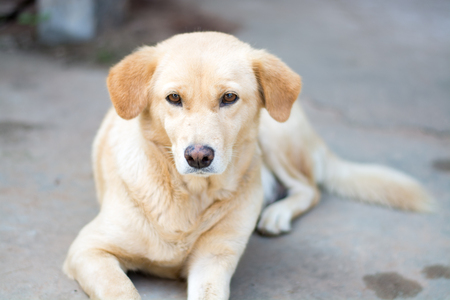Introduction to Pet Ownership in India
Pet keeping has become an integral part of many Indian households, reflecting a growing urban middle class and shifting lifestyle trends. Traditionally, animals like cows, dogs, and cats have had significant cultural and religious importance, with dogs and cats emerging as the most popular pets in cities today. Over recent years, there has been a noticeable rise in exotic pet ownership, including birds, reptiles, and small mammals. This surge is often influenced by social media trends, Bollywood celebrities, and an increasing fascination with unique or rare species. However, not all animals are suitable or legal to keep as pets in India due to concerns related to animal welfare, ecological balance, and public safety. Some pets are considered controversial or outright banned because they may threaten local biodiversity or involve ethical issues such as illegal wildlife trade. As a result, understanding which animals are permitted and which are restricted is crucial for any prospective pet owner in India. The following sections will provide detailed insights into the list of banned pets in India and the related laws that govern pet ownership.
2. List of Banned Pets in India
India’s regulations regarding pet ownership are influenced by both legal statutes and traditional customs. The Government of India, primarily through the Wildlife Protection Act, 1972 and notifications from the Ministry of Environment, Forest and Climate Change, strictly prohibits keeping certain wild and exotic animals as pets. These rules are enforced to protect native wildlife, maintain biodiversity, and ensure public safety. Below is a detailed list of animals and species that are currently banned as pets in India:
Wildlife Species Prohibited as Pets
| Category | Examples of Banned Animals | Legal Reference |
|---|---|---|
| Mammals | Tigers, Lions, Leopards, Elephants, Bears, Monkeys (all primate species), Indian Wolves, Sloth Bears | Wildlife Protection Act, 1972 |
| Birds | Indian Parakeet, Mynah, Peafowl (Peacock), Owls, Eagles, Vultures, All native bird species listed under Schedule I-IV of WPA | Wildlife Protection Act, 1972; Customs Regulations |
| Reptiles & Amphibians | Crocodiles, Snakes (Cobras, Pythons), Turtles (Star Tortoise), Monitor Lizards | Wildlife Protection Act, 1972; CITES Agreement |
| Exotic/Invasive Species | Certain foreign turtles and tortoises (e.g., Red-eared slider without import permits), Venomous reptiles without proper documentation | Customs Act; CITES Guidelines |
| Aquatic Animals | Dolphins, Whales, Sharks (certain protected species) | Wildlife Protection Act, 1972; Fisheries Act |
Customary Restrictions and Community Practices
Apart from official laws, some communities in India follow religious or cultural beliefs that restrict the keeping of specific animals as pets. For example, cows are considered sacred in Hindu tradition and cannot be owned as conventional pets.
Key Takeaways for Pet Owners in India:
- No native wild animal or bird can be kept as a pet without explicit government permission.
- Banned species include all animals listed under Schedules I-IV of the Wildlife Protection Act.
- Possession or trade of these animals is punishable by heavy fines and imprisonment.
- Exotic pets must have valid import documentation according to CITES regulations.
- Puppies, cats (non-wild breeds), common birds like budgerigars and imported fish are generally allowed.

3. Relevant Indian Laws and Regulations
When it comes to pet ownership in India, several key laws and government guidelines shape what is allowed and what is prohibited. The most significant legislation is the Wildlife Protection Act, 1972, which strictly prohibits individuals from keeping wild animals—native or exotic species—listed under various Schedules of the Act as pets. This includes commonly trafficked animals like Indian parakeets, star tortoises, and monitor lizards. The primary aim of this law is to prevent illegal trade and ensure the conservation of India’s unique biodiversity.
Additionally, the Prevention of Cruelty to Animals Act, 1960, sets out regulations for the ethical treatment of all animals, including those kept as pets. This law mandates that pet owners must not subject their animals to cruelty or neglect, and outlines penalties for violations. In urban areas, local municipal corporations often have their own rules regarding pet licenses—especially for dogs—and may impose restrictions on certain breeds considered dangerous or unmanageable.
The Ministry of Environment, Forest and Climate Change (MoEFCC) periodically issues guidelines regarding import and possession of exotic pets. According to recent government advisories, Indians who already own exotic species must declare them with authorities to avoid legal complications. Importing exotic pets without proper documentation from the Directorate General of Foreign Trade (DGFT) can result in confiscation and legal action.
It is important for potential pet owners to consult both central and state laws before adopting any animal. By adhering to these regulations, citizens not only ensure the wellbeing of their pets but also contribute to wildlife conservation efforts across India.
4. Consequences of Keeping Banned Pets
Keeping banned pets in India is not just a matter of personal preference—it can lead to serious legal and financial trouble. The Indian government, through various laws and notifications, enforces strict regulations on the ownership of certain exotic and wild animals. Individuals found possessing pets listed as prohibited may face several consequences, which are detailed below:
Legal Repercussions
The possession of banned pets is considered an offence under the Wildlife Protection Act, 1972 and other relevant statutes. If caught with a prohibited animal, owners may face prosecution, which can result in criminal records, imprisonment, or both. Legal proceedings can be lengthy and stressful, often involving police investigations and court appearances.
Common Legal Actions Taken
| Offence | Relevant Law | Possible Punishment |
|---|---|---|
| Possession of protected wild animals | Wildlife Protection Act, 1972 | Imprisonment up to 7 years and/or heavy fine |
| Trade or transportation of banned pets | Customs Act & Wildlife Laws | Seizure of animal & prosecution |
| Lack of documentation for exotic species | DGFT Notifications/Local Laws | Confiscation, fines, potential jail term |
Financial Penalties
The financial impact of keeping a banned pet can be substantial. Fines imposed by authorities vary depending on the type of animal and the severity of the violation. In some cases, fines may reach lakhs of rupees. Additionally, owners are responsible for any costs associated with the confiscation, care, or relocation of the animal after seizure.
Examples of Financial Penalties
- Fines: Can range from ₹10,000 to several lakhs depending on the species and circumstances.
- Animal Confiscation Fees: Costs related to transfer or medical care until suitable arrangements are made.
- Court Costs: Legal representation and court fees add to overall expenses.
Other Consequences in Indian Society
Apart from legal and financial troubles, individuals found guilty may suffer social stigma or community backlash. In some cases, local Resident Welfare Associations (RWAs) or housing societies may take independent action against offenders under society bylaws.
If you are considering owning an exotic or uncommon pet in India, it is crucial to check its legal status first. Ignorance of the law does not offer protection from these serious repercussions.
5. Legal Pets and Documentation Requirements
In India, pet ownership is regulated to ensure the safety and well-being of both animals and citizens. While many exotic species are banned, there is a clear list of animals that are legal as pets. Common legal pets include dogs, cats, rabbits, guinea pigs, birds like budgerigars and lovebirds, and certain fish species. Before bringing any pet home, it is crucial to verify whether the animal is allowed under Indian law.
Licensing Process for Pet Owners
Most municipal corporations in major cities such as Mumbai, Delhi, and Bengaluru require dog owners to obtain a pet license from the local civic body. The process typically involves submitting an application form with details of the pet and owner, along with vaccination certificates—especially for rabies. Cat licenses may not be mandatory everywhere but are encouraged in some regions. Exotic pets need additional permissions from authorities like the Animal Quarantine & Certification Service (AQCS) or the Directorate General of Foreign Trade (DGFT), particularly if imported.
Essential Paperwork
Pet owners should maintain updated documentation for their pets at all times. This includes:
- Vaccination certificates (mandatory for dogs and recommended for other pets)
- Purchase or adoption papers with proof of origin
- Microchipping records (recommended for identification)
- Import permits for foreign breeds or exotic animals
These documents are important not only for licensing but also during travel or in case of disputes with neighbours or authorities.
Cultural Considerations
In India, keeping cows, elephants, or wild birds as pets is culturally sensitive and often prohibited by law due to religious beliefs and conservation efforts. Always consult local authorities or veterinarians familiar with Indian regulations before acquiring a new pet to ensure full compliance with both legal requirements and community standards.
6. Cultural Sensitivities and Ethical Aspects
India’s diverse cultural landscape deeply influences pet ownership trends, including the list of banned pets and the development of related laws. Across the country, various religious beliefs, social customs, and ethical frameworks shape how people perceive animals in domestic settings.
Religious Beliefs and Pet Restrictions
Many Indian religions hold specific animals as sacred or untouchable. For example, cows are revered in Hinduism, while certain birds and reptiles are respected or avoided in other faiths. This reverence often translates into legal restrictions or community-driven taboos on keeping such animals as pets. Consequently, some species are banned not only for ecological reasons but also to honor religious sentiments.
Social Norms Impacting Pet Choices
Traditional Indian households may prefer native breeds over exotic ones, reflecting a sense of cultural pride and practicality. Exotic pets are sometimes viewed with suspicion due to perceived risks or unfamiliarity. Social acceptance plays a significant role; owning wild or endangered species can attract negative attention, leading to stricter enforcement of bans and social disapproval.
Ethical Considerations in Pet Ownership
The ethical treatment of animals is increasingly emphasized within Indian society. Concerns about animal welfare have led to robust discussions around what constitutes responsible pet ownership. The prevention of cruelty to animals is enshrined in Indian law, shaping which species can legally be kept as pets. These ethical standards support bans on wild-caught or endangered species to protect biodiversity and prevent illegal trade.
Balancing Tradition and Modernity
Indian pet laws strive to balance traditional values with contemporary ethical imperatives. While respecting local customs and spiritual beliefs, lawmakers also consider global standards for animal rights and environmental protection. This blend of perspectives ensures that regulations regarding banned pets remain relevant, culturally appropriate, and ethically sound within the unique context of Indian society.

